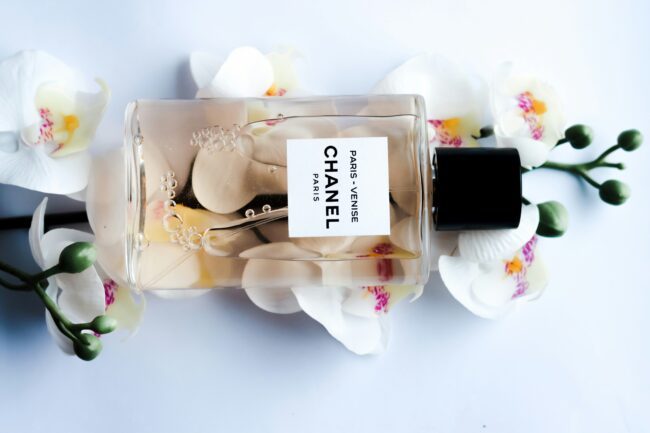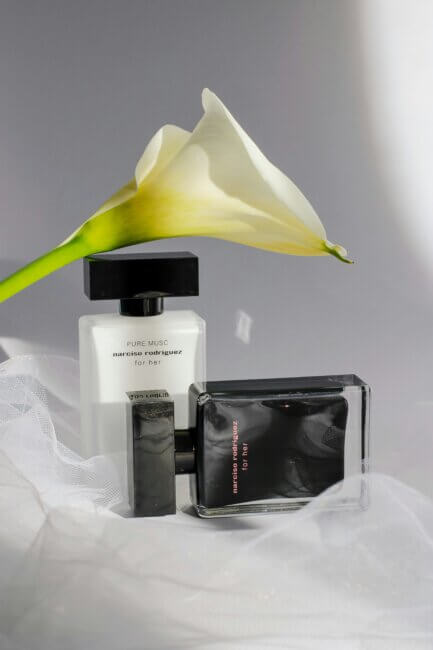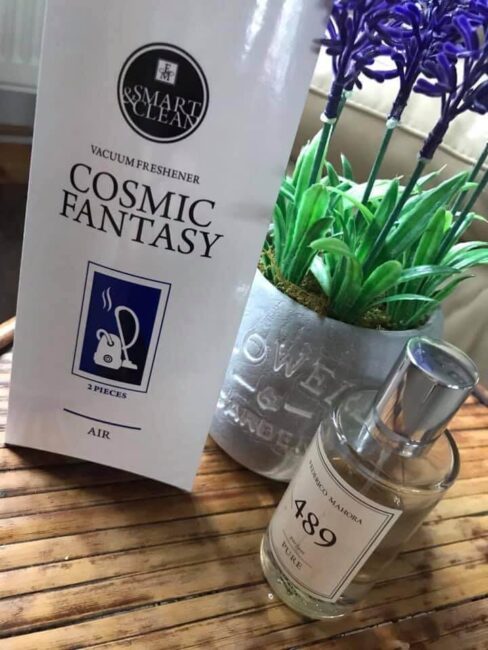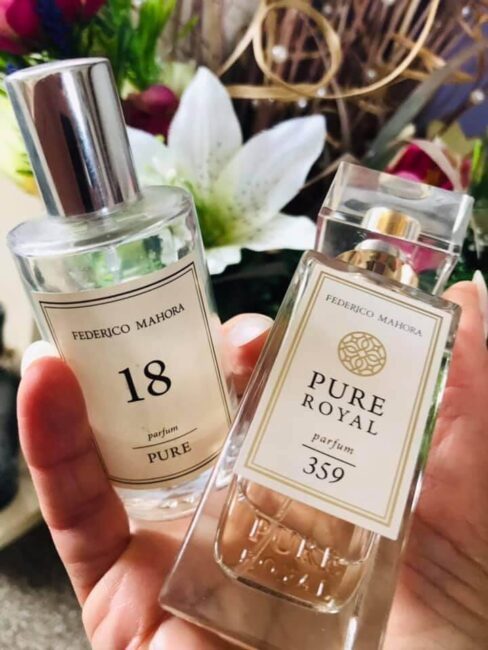Expired Perfume
Most of you already know this: perfumes don’t last forever. You might wonder if the expired perfume has a date printed somewhere. Despite their luxurious image and often hefty price tags, these fragrant concoctions have a finite shelf life.
It’s not always as straightforward as a stamped date, but some indicators can help us understand when our favourite scents have reached their twilight.

This article is part of a fragrance blog I built myself — I’ll explain how at the end if you’re curious.
Deciphering Perfume Expiry: Understanding the Signs
We’re not just talking about a decline in aroma but also about the complex chemistry that makes up a perfume. Various factors contribute to a perfume’s longevity, including the quality of its ingredients, the type of fragrance (Eau de Toilette, Eau de Parfum, etc.), and the conditions under which it’s stored.
An Eau de Toilette might not last as long as an Eau de Parfum due to the difference in essential oil concentration.
If you want to keep your scents in tip-top condition for as long as possible, there are a few signs you should look for. We identify the telltale signs that indicate your perfume may have lost its initial charm and what these changes could mean. This understanding is crucial; it helps you get the most out of your perfumes and ensures you wear only fragrances at their best.
In my opinion, having this knowledge empowers you as a connoisseur of scent. It ensures that what you apply is pleasing to the senses and safe on your skin. So, remember, recognising the lifespan of your perfume is an essential skill in maintaining the integrity of your fragrance collection.
Related article: Perfume Longevity
Transformations and Telltales: Recognising Expired Perfume
Over time, the scent you cherish may undergo some alterations, so I’m here to help you spot when a scent has seen better days, often long before you take the last spritz.
Have you ever wondered if your perfume can change colour? Guess what? They can. When perfume expires, the once vivid, clear liquid may take on a darker hue or become cloudy. Exposure to light and heat can speed up this process, causing the chemical reaction that leads to colour changes.
Now, does expired perfume feel different on the skin? Sometimes, it might. If the alcohol content has evaporated, this could affect how the perfume disperses and how long it lingers on your skin, perhaps leaving a sticky or oily residue. However, this isn’t a common telltale sign, and the changes are often more noticeable in its scent than its feel.

Speaking of scent, that’s the most obvious giveaway. Perfumes are complex concoctions with top, middle, and base notes. When they expire, their chemical structure changes, sometimes breaking the delicate balance and altering the original fragrance profile. The scent could become sour, musty, or lack its former complexity and potency.
Giving your perfume a ‘nose test’ is the best way to determine if it’s still good to wear. Trust your sense of smell; it’s the most reliable tool you have in this case.
You might be thinking, ‘Does perfume have an expiry date?’ While not all perfume bottles have a printed expiration date, most have a batch code you can use to find out when they were manufactured. Generally, unopened bottles can last 3 to 5 years, but once opened, they’re best used within 1 to 2 years for optimal scent quality.
What should we do with an expired perfume? Well, there are two ways to react to this. You can throw it away, or, if you’re interested in sustainability, there are inventive ways to repurpose your beloved fragrance that we’ll delve into in the next section.

Navigating the Scented Shelf-Life: Tips and Best Practices
Let’s share some wisdom on keeping your fragrances smelling great for as long as possible. It’s not just about hoarding your perfume stash; it’s about clever storage and handling.
You’ve probably noticed that heat, light, and humidity can be a perfume’s worst enemies. If you want your scents to last, keep them in a cool, dark place—a dresser drawer or a closet shelf is ideal. Just steer clear of the bathroom, where the humidity swings can wreak havoc on your fragrance’s composition.
Now, I’m not saying you need to go out and buy a fancy storage unit, but do consider the original packaging. Many perfumes come in a box to protect them from sunlight and temperature changes, so think twice before binning them.
Don’t worry too much about having to use your perfume quickly. While many don’t have a strict expiration date, paying attention to the scent is important. You will get a good couple of years out of your favourite fragrance, but if something smells off, it’s generally a sign to say goodbye.
If you’re uncertain about discarding a slightly altered perfume, there are options worth exploring. You might consider repurposing it for other uses, such as scenting linens or refreshing a room. However, before repurposing, it is crucial to ensure the perfume does not cause skin irritation.
When selecting perfumes with longevity in mind, choose something that resonates with you. Opt for Eau de parfum or extrait de parfum, as higher concentrations of fragrance oils often result in a longer-lasting product.
Saying Goodbye with Grace: The Etiquette of Expired Perfume Disposal
Once the lingering scent from the final spritz dissipates, and it’s time to part with your beloved bottle, it should be done responsibly. Don’t just toss it in the rubbish; consider the environmental impact. Instead, consider eco-friendly disposal methods. Many communities offer hazardous waste programs that accept perfumes. Alternatively, look for recycling programs that handle cosmetic packaging.
Giving away or selling an expired perfume might seem like a kind idea, but it’s not always ethical or appreciated. Fragrances change over time, and what’s left in your bottle might not be the delightful scent it once was. It could even cause skin irritation for someone else. So, be mindful about passing on your once-cherished scents to others.
If you’re eager to recycle the bottle, rinse out any remaining perfume. Glass bottles can often be recycled with your regular glass recycling. For plastic components, check your local recycling guidelines. Remember, the pump and nozzle might not be recyclable due to their metal springs, so separate these parts and dispose of them according to local regulations.
Parting with a perfume you’ve grown fond of can be a sentimental moment, but it opens the door for new scents to enter your life. It’s a chance to explore fresh fragrances that will become the backdrop for new memories. Be sure to recycle or dispose of your expired perfumes conscientiously, knowing it’s the final step in the life cycle of every exquisite scent.
Related Article: Signature Fragrances
How This Blog Was Created
Fragrances With Love started as a personal hobby — sharing my love of perfume, affordable finds, and fragrance trends. I didn’t start with a background in websites, marketing, or blogging.
This site was built by writing about something I genuinely enjoy. I use one platform to host my website, write my blog posts, and learn how to monetise content step by step, all in one place.
If you enjoy writing and have ever thought about starting a blog around something you love, you can see the platform I used to create this site below.
How I Created Fragrances With Love
Conclusion
Understanding the lifespan of perfumes is essential for ensuring both safety and satisfaction. While there may not always be an expiration date stamped on the bottle, recognising the signs of expired perfume is crucial. From changes in scent and appearance to potential risks of skin irritation, being aware of these indicators empowers consumers to make informed decisions about their fragrance choices.
Whether repurposing expired perfumes for alternative uses or investing in fresh bottles for optimal fragrance enjoyment, heeding perfume expiry is a step towards maintaining a delightful olfactory experience. By staying vigilant and mindful of the signs, we can navigate the world of perfume with confidence and appreciation for its fleeting beauty.



Photos: ©Fragranceswithlove.com
Related article: FM perfume 359 review
Don’t miss out on the latest updates, exclusive offers, and insider tips on fragrance. Sign up for our newsletter today and immerse yourself in captivating scents.